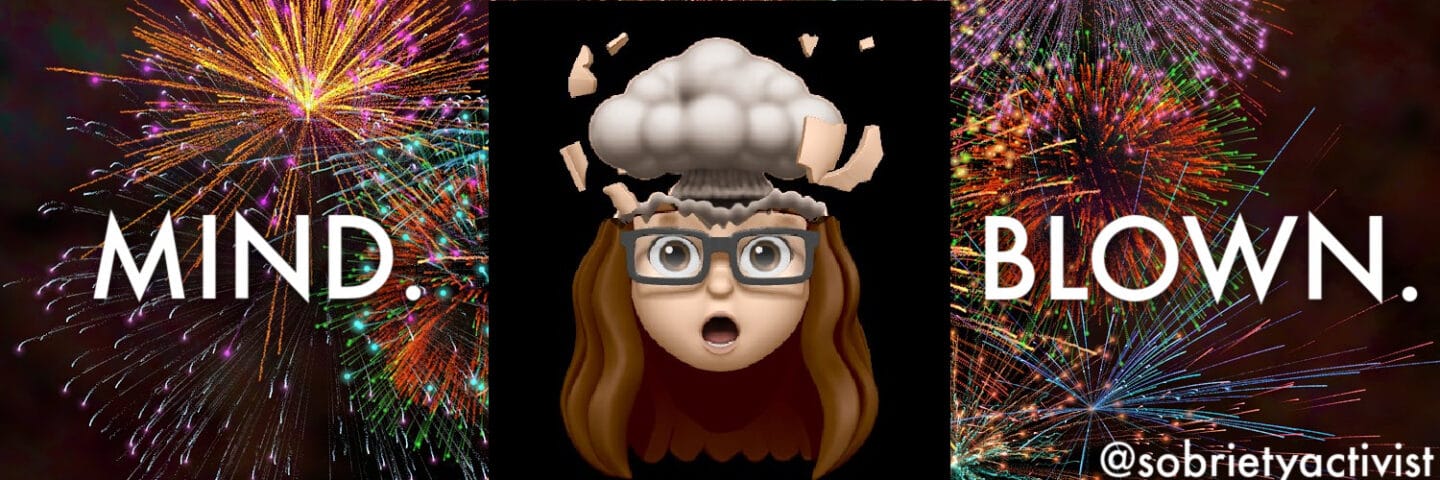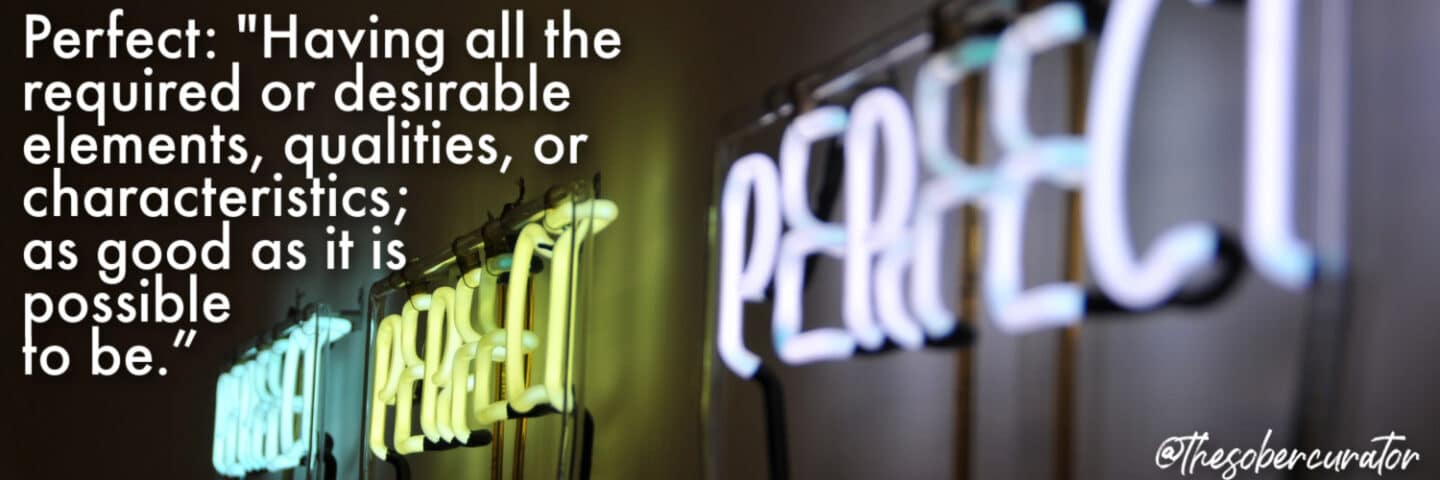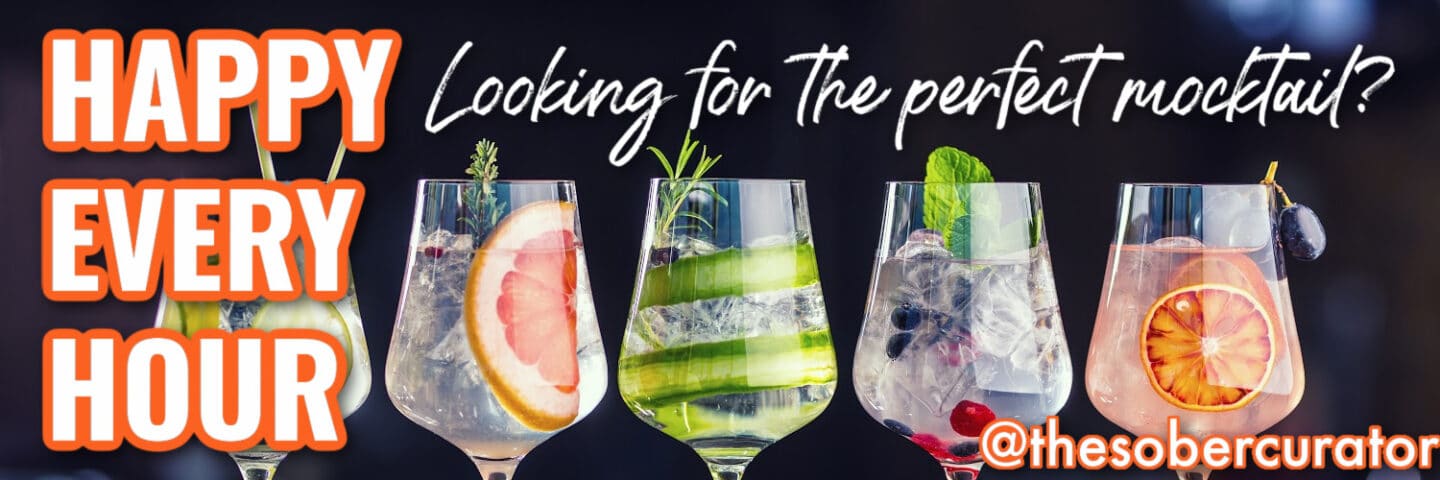
Hey all! This is my first blog for The Sober Curator and I am so excited I could scream! So excited in fact that I spent DAYS trying to decide what to write about first. I made a list of ideas and I asked several people what they thought I should write about. I brainstormed for the perfect topic, and then I couldn’t decide where to start! I do this kind of thing often and it drives my husband bonkers.
Why am I the way that I am?
I put a lot of pressure on myself to be perfect at certain things in my life. When I do this, I lose sight of DOING whatever it is that I’m doing. While overly brainstorming for my blog, I found that there is a link between perfectionism and those of us with problem drinking behaviors.
Wait, what?

Addiction expert and author Mark Kastleman writes:
“I know it sounds like a glaring contradiction, a cruel paradox, but it’s absolutely true-most addicts are obsessed with perfection! They perceive that in order to be of any real value; to be loved and accepted, they have to be perfect. And when the pursuit of perfection wears them out, they seek escape through addiction. This then piles on the guilt and shame, and once again they clench their fists and grit their teeth and start the whole perfection thing again-and so goes the cycle, over and over again.”

There’s nothing wrong with wanting to better ourselves, but we have to realize that we aren’t going to be perfect at everything we do. Whether this way of thinking comes from our parents, caregivers, or ourselves, it’s learned. This is actually good news for us – it means that we can unlearn it too!
So since we’re already in the groove of bettering ourselves, it’s only natural for us to perfect being imperfect.
But how?
- You better recognize! The first step to changing a bad habit is recognizing it IS a bad habit. Then, we need to do something about it. Think about quitting drinking for example. We needed to recognize and accept that there was an issue for us before we could make any changes. Try to notice when you’re having thoughts about things being perfect. The more you recognize when you’re doing it – the easier it will be to work on it.
- Switch directions! I’m talking about your brain. You don’t have to take a U-turn, just take a slight right. Each time you notice yourself having a perfectionistic thought, stop yourself. Lower your expectations. Instead of re-reading that paper ten times, give yourself a limit and read it five times, next time, three. You get the point. It becomes more natural as time goes on. Like any habit change you’re rewiring your brain, so it takes a little work.
- Give Yourself Grace – If I had a nickel for every time I heard that phrase, I’d be on a beach drinking a fruity mocktail right now. But it’s true. Don’t be so hard on yourself. Remind yourself that you’re doing the best you can. Instead of perfecting everything, work on being OK with being good enough.
So now that we got that out of the way, I’m going to go reread this a few more times and get several other opinions before I set it to publish (wink wink).
Remember, we all have our own version of what we want our lives to look like. Perfection is in the eye of the beholder. I guess in this case, it’s in the eye of the (retired) beer-holder.
A study done in 2019 found that the differences you feel between your actual self and your ideal self can cause uneasy feelings that lead us to drink. Those of us who experience high gaps between the two are more susceptible to problem drinking behaviors. We drink to ease the discomfort associated with not living up to what is our ideal self. Can you relate?
Another 2019 study showed that perfectionistic people had more negative emotions day-to-day. This motivated them to cope with those negative emotions by drinking alcohol. In this study, perfectionism didn’t predict the amount people drank. But it did predict alcohol problems.

Are you looking for the perfect mocktail? We know we mix a mean mocktail. HAPPY EVERY HOUR will keep you up to date on the latest and greatest trends in the world of mocktails and zero-proof beverages. TRIGGER WARNING: People in early sobriety may want to proceed with caution. Always read labels. Please hydrate responsibly … because drunk never looks good.
Resources are available
Resources Are Available
If you or someone you know is experiencing difficulties surrounding alcoholism, addiction, or mental illness, please reach out and ask for help. People everywhere can and want to help; you just have to know where to look. And continue to look until you find what works for you. Click here for a list of regional and national resources.






